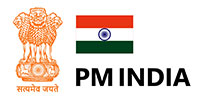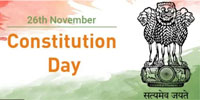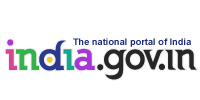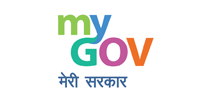Mechanical Processing Division (MPD)

"The cotton is grown to be spun. If cotton spins well, obviously it is good, otherwise it is not!". These iconic words are of Mr. William Lawrence Balls, an eminent researcher, who can aptly be termed as the Father of Cotton Technology. These words also embody the nature and spirit of research work in the Mechanical Processing Division which began operations in 1924 and is the first and the oldest division of CIRCOT. The research and activities of this division have in many ways guided and charted the research direction of the Institute throughout its existence.
The cotton lint received in bale form from gin yards or cotton warehouses need to be subjected to a series of mechanical processing before it is converted into products like yarn / fabric. Mechanical processing of cotton starts with raw bales of cotton and process them in stages until it is converted into yarn or cloth. Mechanical processing Division of CIRCOT is equipped with state of art cotton processing machineries for undertaking research and development on various stages of mechanical processing of cotton. Mechanical Processing Division of CIRCOT also plays a key role in evaluation of spinnability of cotton samples received from breeding programmes under All India Coordinated Research Programme on Cotton (AICRP-cotton) and thereby helping cotton breeding program of the country.
Mandate of Mechanical Processing Division
- To undertake basic and applied research on post-harvest processing, spinning and technical textiles for better utilization of cotton and its byproducts.
- To extend technological support to breeders for assessment and improvement of spinning behaviour of newly developed strains of Indian cottons.
- To test and evaluate commercial and research samples of fibres, yarns and fabrics.
- To offer technical consultancy and undertake contract research with textile industry.
- To participate in the technology transfer and extension activities of the institute.
Head of Division
| Sr.No. | Name | Designation & Research Interest | Contact | Photo | |
|---|---|---|---|---|---|
| 1 | Dr. N. Shanmugam | Principal Scientist (Textile Manufacture and Technology) Research Interest : Cotton fibre-yarn property modelling, Artificial Intelligence, Spinning sysyems, Cotton value chain, Natural fibre blends. |
Ext No. 301 | nshanmugham[dot]circot[at]icar[dot]org[dot]in |  |
Scientists
| Sr.No. | Name | Designation & Research Interest | Contact | Photo | |
|---|---|---|---|---|---|
| 1 | Dr. Vishnu G. Arude | Principal Scientist (Farm Machinery & Power) Research Interest : Post harvest processing of cotton and natural fibres, ginning and spinning |
Ext No. 304 | vg[dot]arude[at]icar[dot]org[dot]in |  |
| 2 | Dr. Senthilkumar T. | Senior Scientist (Textile Manufacture) Research Interest : Fibre composites, technical textiles and effluent treatment |
Ext No. 414 | senthilkumar[dot]t[at]icar[dot]org[dot]in |  |
| 3 | Dr. G. Krishna Prasad | Senior Scientist (Textile Manufacture) Research Interest : Spinning, Technical textiles and Composites |
Ext No. 413 | krishna[dot]g[at]icar[dot]org[dot]in |  |
| 4 | Dr. G. T. V. Prabu | Senior Scientist (Textile Manufacture) Research Interest : Cotton spinning, electro-spinning, nano application in textiles |
Ext No. 310 | prabu[dot]gtv[at]icar[dot]org[dot]in |  |
| 5 | Mr. Himanshushekhar Chaurasia | Scientist (Computer Application) Research Interest : Machine Learning, Deep Learning, Image processing, & IoT |
Ext No. 221 | h[dot]chaurasia[at]icar[dot]org[dot]in | 
|
Technical Staff
| Sr.No. | Name | Designation | Photo |
|---|---|---|---|
| 1 | Mr. Santosh Vaman Kokane | Senior Technical Assistant | 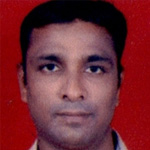 |
| 2 | Mr. Yogesh Punnulal Nagpure | Senior Technician | 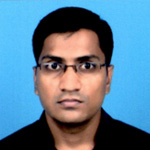
|
- Modern spinning preparatory machines
- Ring spinning machines
- Compact ring Spinning machine
- Core yarn spinning machine
- Rotor spinning system
- DREF spinning system
- Automatic winding machine
- Miniature spinning machines
- Circular knitting machines
- Compression moulding machine
- Electro-spinning machine Facilities for Nanofibre Production
- Fluidized bed reactor for activated carbon preparation
- BET analyser for surface area measurement
- Garment Laboratory
Towards the end of the 20th century and continuing into this millennium, the Division diversified its activities and continue to carry out research work on blends of cotton with various natural and man-made fibres, technical textiles, nonwovens etc. Major technologies developed include:
- A Miniature Spinning System consisting of various table-model machines with state-of-the-art technology at about one-fourth the cost of imported one
- Technology for utilisation of indigenous short fine wool including Angora rabbit hair fibres in blends with cotton.
- Modified spinning process to produce finer cotton-ramie yarns in commercial cotton spinning system to produce knits
- Development of newer type of coir-cotton composite yarn and its utilisation for production of rubberised conveyor belting
- Modified splicer for production of better quality splice joints
- Interactive Meeting with Scientists of Bhabha Atomic Research Centre (BARC) for Collaboration
- A novel textile-rubber composite for use in technical textile applications like rubber dam
- Improved machine for disintegration and defibering of coconut fibre
- Novel coconut fibre segregator machine
- A lap preparation machine for micro Spinning of small samples
- Development of CIRCOT mini-card
- Development of cotton/PLA, cotton/bamboo viscose blended yarns and fabrics for sports apparel.
- Indigenous Electrospinning setup for production of Nano fibres.
- RFL free technology for preparation of rubber composites
- Development of activated carbon from cotton stalk
- Lignocellulosic fibre reinforced composite for agricultural application
- Development of high performance wound dressing Pad
Major achievements of the Division (Past and Present)
- 1924 : First spinning test conducted in Asia
- 1927 : Study of Blowroom treatment on Indian cottons – results have been used extensively for development of modern blowroom line
- 1928-1931 : Specimens of fabric over an ancient relic recovered from the archaeological Excavations at Mohenjo-Daro – Investigated and the fibres identified as ‘cotton’
- 1925-1933 : Full Spinning technique developed and standardised
- 1927 : Research on Spinning Environment (65% R.H. & 27ºC Temp. optimum for spinning process)
- 1929 : Project on evaluation of representative trade varieties of Indian cottons started
- 1932 : First training course on cotton technology for persons deputed by industry conducted
- 1933 : The First Edition of the Handbook on ‘Methods of tests on fibre, yarn and cloth’ published
- 1935 : Research on cotton combing – the process causes reduction in neps and significant improvement in spinnability by increase in mean fibre length
- 1936 : R & D on using curved path during drafting, enabling better control over floating fibres resulting in yarn of higher strength. This basic concept with suitable modifications has been used extensively in the spinning industry
- 1938 : A thumb rule for cotton mixing established
- 1949 : Causes of neps in Indian cotton yarns
- 1950-1962 : Development of the unique ‘Micro spinning technique’, where a small quantity (as low as 42 g) of lint obtained from an individual plant could be subjected to actual spinning test. This enabled the breeders to obtain comparative spinning values of quite a large number of new strains in a short period of time and at an earlier stage of propagation
- 1956-1957 : Reports on the experiments carried out on Amber Charkha, at the laboratory, Effects of storage of baled Indian cottons at Bombay and at their respective growth centers on the lint quality, A review of the studies of the relationship between the spinning value and the chief fibre properties of a cotton
- 1958 : Degradation of cotton during mechanical processing
- 1962 : Studies on the relationship between fibre properties and spinning value of cottons of Staple 1-1/16” and above
- 1967 : It became one of the major hub of activity of the All India Coordinated Research Project on Cotton (AICCIP) initiated by and breeders
- 1974 : Research trials on blending of the then newly developed Indian cotton varieties such as Sujata, Suvin, PSH, Varalaxmi and Hybrid-4 with polyester fibre for producing medium to fine count yarn, comparable to blends obtained from imported Giza-45 and Sudan cotton
- 1976 : ICAR award for team research and the Indian Merchants’ chamber award for outstanding contribution in the field of agriculture
- 1979 : Advent of Rotor Spinning technology in India, setting up of research facility at MPD
- 1980-2005 : Relentless work in evaluating spinning potential of new strains of cotton developed by breeders from all over the country. Dedicated work was done to maintain the quality, and attempts to improve the potential of existing varieties of cotton through AICCIP, Standard and Trade variety sample processing and testing. Over 22,000 new and improved strains have been tested for the fibre properties, spinning performance, or both, and over 5,000 technical reports have been issued to the cotton breeders, which have contributed to place the breeding work for quality cottons on a sure and scientific foundation.
- 1980-1985 : Studies on: Efficiency of high draft on short spinning sequence, Blending of cotton with similar and dissimilar fibres, Development of: Cotton-Jute fibre and Cotton-Pineapple fibre blended products
- 1985-1989 : Extensive Rotor spinning trials: Fine spinning, Mixing, Spinning of Man-made Fibres and blends, Development of Cotton/Viscose Hollow Polyester Fibre Blended Light Weight Suiting Fabrics
- 1989-1993 : Studies on Causes and Control of Yarn Faults – Results were well received by the industry, helped it to attain 5% Uster Norms
- 1993-1995 : First Air-jet spinning of Indian cottons and their Blends with Polyester
- 1995-1997 : Cotton Knitting Studies
- 1996-2000 : Research on-
- Design Modification and Optimization of Pneumatic Splicer for Production of Better Quality Splice Joints
- Spinning and Fabric Manufacturing Trials from Naturally Coloured Cottons
- 2000-2005 : Upgradation of the existing machinery to be in line with industry standards
- 2007 : Setting up of Friction Spinning (DREF-3) facility and beginning of research on technical yarns/textiles
- 2007-2012 : Research on two prestigious NAIP funded sub-projects-
- Design & Development of Flexi-Check Dam (Rubber Dam) for watershed management
- A Value Chain projects for Coconut fibre and its by-products
- 2009-2012 : Setting up of Modern Blowroom, Carding and Drawframe facility, Core Spinning and Compact spinning facilities
- 2013-2014 : Setting up of Electrospinning facility for nanofibre production
- 2014-2.15: Setting up of fibre reinforced composite Laboratory
- 2014-2015: First training course on Electrospinning
- 2015-2016: Developed activated carbon production facilities
- 2016-2017: Started First training course on knitting and fibre reinforced composite for academician and industry people
- 2017-2018: Created Garment Laboratory for stitching of research samples and Garment production
Agricultural Knowledge Management Unit (AKMU) of ICAR-CIRCOT supports information technology needs of the Institute by maintaining Internet Services, Email, Video Conferencing and other computer related facilities. AKMU also periodically updates Institute Website. AKMU also Local Area Network (LAN) and WiFi Network of the Institute. ICAR-CIRCOT is connected with 1000 mbps lease line under National Knowledge Network (NKN) provided by Govt. of India and 10 mbps ILL from RailTel to provide all the ICT services around the clock for the employees of the Institute.
AKMU provides server based enterprise class security to all the connected PCs for protecting the IT assets from malware threats and other external sources of threats. Institute internal IT assets are also protected using a state of the art Next Generation Firewall which protects from intrusion attacks originating from Internet.
AKMU manages ICAR-CIRCOT Website: circot.icar.gov.in. The website highlights research activities and achievements of the institute and act as an interface between institute and stake holders. The contents of the Institute Website are periodically updated with information on training programmes, recruitment of temporary staff, tender notices and other circulars of the institute. IP based video conferencing facility of ICAR-CIRCOT is operated and maintained by AKMU.
AKMU is also work closely with ICAR ERP, ICAR Unified Communication System and Government of India initiatives like Aadhar Enabled Biometric Attendance System (AEBAS) and Central Public Procurement Portal (CPPP) by providing technical support to end users of these systems.
- Back to previous page
- |
-
Page last updated date:12-01-2026 11:58 AM




